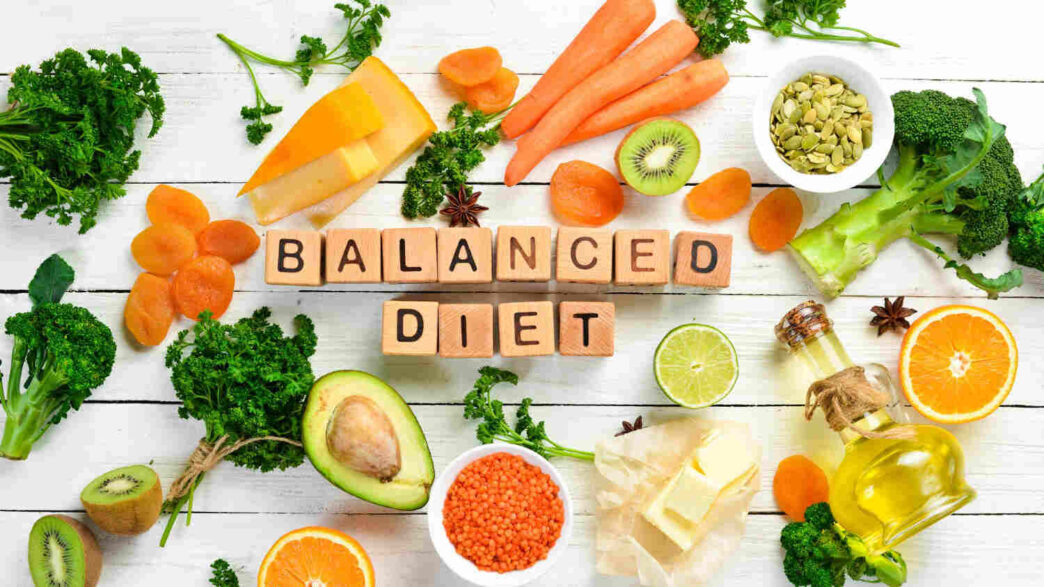In today’s fast-paced world, where we’re constantly on the go and trying to keep up with the demands of work, family, and other commitments, we often forget the importance of healthy eating habits and a balanced diet. With an abundance of fast food options and unhealthy snacks readily available, it’s easy to fall into the trap of unhealthy eating habits. However, a balanced diet is essential for maintaining good health and happy life. In this article, we will explore the importance of balanced diets and healthy eating and provide practical tips on how to incorporate them into your daily routine.
What is a Balanced Diet?
A balanced diet is a diet that includes a variety of foods from all the food groups in the right proportions. The food groups include fruits, vegetables, whole grains, lean proteins, and healthy fats. Each food group provides essential nutrients that are needed for the proper functioning of the body.
Balanced diets should include:
1. Fruits and Vegetables
Fruits and vegetables are rich in vitamins, minerals, fiber, and antioxidants that are essential for good health. They help in preventing chronic diseases such as heart disease, diabetes, and cancer. It is recommended to have at least five servings of fruits and vegetables every day.
2. Whole Grains
Whole grains are rich in fiber, vitamins, and minerals. They help maintain a healthy weight and reduce the risk of chronic diseases. Examples of whole grains include whole wheat, oats, quinoa, and brown rice.
3. Lean Proteins
Proteins are essential for building and repairing tissues in the body. Lean proteins such as chicken, fish, beans, and tofu are a great source of protein without the added unhealthy fats.
4. Healthy Fats
Healthy fats such as omega-3 fatty acids are essential for brain function and heart health. They are found in foods such as fatty fish, nuts, and seeds.
5. Hydration
Staying hydrated is essential. Water is necessary for regulating body temperature, transporting nutrients, removing waste, and lubricating joints. Dehydration can lead to fatigue, headaches, dizziness, and even more serious health issues. In addition to water, other fluids such as herbal tea, milk, and low-sugar beverages can also contribute to hydration.
However, it’s important to avoid sugary drinks such as soda and juice, which can contribute to weight gain and other health issues.
Why Balanced Diets are Important?
Balanced diets are important for maintaining good health and preventing chronic diseases. It provides essential nutrients that are needed for the proper functioning of the body. A balanced diet can help in:
1. Maintaining a Healthy Weight
A balanced diet that is low in calories and high in nutrients can help in maintaining a healthy weight. It can also reduce the risk of obesity, which is a risk factor for chronic diseases.
2. Preventing Chronic Diseases
A balanced diet that is rich in fruits, vegetables, whole grains, lean proteins, and healthy fats can help in preventing chronic diseases such as heart disease, diabetes, and cancer.
3. Boosting Energy Levels
A balanced diet that is rich in nutrients can help in boosting energy levels and reduce fatigue.
4. Improving Mental Health
A balanced diet that is rich in omega-3 fatty acids can help improve mental health and reduce the risk of depression and anxiety.
Practical Tips for Incorporating Balanced Diets and Healthy Eating
Incorporating balanced diets and healthy eating into your daily routine can be challenging.
Here are some practical tips that can help:
1. Plan Your Meals
Planning your meals in advance can help ensure that you have a balanced diet. Take the time to plan out your meals for the week, including a variety of foods from all the food groups. This can help you avoid last-minute decisions to grab fast food or unhealthy snacks. Make a grocery list based on your meal plan and stick to it when shopping.
2. Eat Mindfully
Eating slowly and mindfully, paying attention to your body’s hunger and fullness signals, can help you make better food choices and avoid overeating. Avoid eating when you’re bored, stressed, or emotional. Instead, focus on enjoying your meals and the flavors and textures of your food.
3. Cook At Home
Cooking at home can be a fun and creative way to try new recipes and control the ingredients and portion sizes of your meals. Experiment with healthy cooking techniques such as grilling, baking, or steaming. Plan a weekly family meal prep day to prepare meals for the week with your loved ones.
4. Make Healthy Snack Choices
Choose healthy snack options such as fruits, vegetables, nuts, and seeds instead of unhealthy snacks such as chips and cookies. Keep healthy snacks readily available at home and work to avoid reaching for junk food when hunger strikes.
5. Stay Hydrated
Drinking plenty of water and avoiding sugary drinks can help you stay hydrated and maintain a healthy weight. Carry a refillable water bottle with you and aim to drink at least eight glasses of water a day.
6. Read Labels
When shopping for food, read the nutrition labels to make informed decisions about what you’re putting into your body. Look for foods that are low in saturated and trans fats, added sugars, and sodium. Choose foods that are high in fiber, vitamins, and minerals.
7. Allow for Treats
Incorporating treats in moderation can help you maintain a healthy and balanced diet. Enjoy your favorite foods and drinks in moderation, and don’t deprive yourself of the foods you love. Indulging in a treat occasionally can help you stick to your healthy eating plan in the long run.
The Final Words
Incorporating a balanced diets and healthy eating habits into your daily life can be challenging but is essential for good health and well-being. By following these practical tips, you can make healthy eating a part of your daily routine and enjoy the benefits of a healthy and balanced diet.

Dr. Adil Houari, MD, MSc, MBA is a physician specializing in sports medicine, with a passion for helping athletes achieve their goals while maintaining their health and well-being. With years of experience as an athlete (triathlete) and physician, he has developed a keen eye for identifying potential issues and providing targeted interventions to keep athletes performing at their best. His expertise in sports medicine allows him to provide holistic care to individuals of all levels, from weekend warriors to professional athletes.











